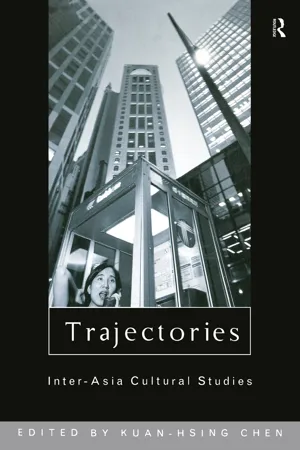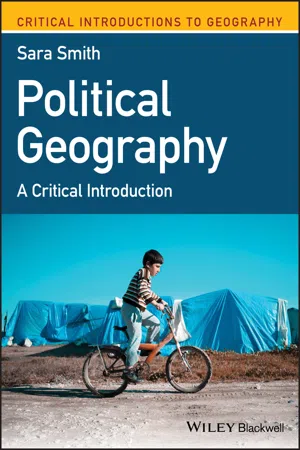History
Decolonization
Decolonization refers to the process by which colonized nations gained independence from their colonial rulers. This often involved political, social, and economic transformations as former colonies sought to assert their sovereignty and establish self-governance. Decolonization movements were significant in reshaping global power dynamics and challenging the legacies of imperialism.
Written by Perlego with AI-assistance
Related key terms
4 Key excerpts on "Decolonization"
- eBook - ePub
Decolonization
A Short History
- Jan Jansen, Jürgen Osterhammel, Jeremiah Riemer(Authors)
- 2017(Publication Date)
- Princeton University Press(Publisher)
1Decolonization AS MOMENT AND PROCESS“Decolonization” is a technical and rather undramatic term for one of the most dramatic processes in modern history: the disappearance of empire as a political form, and the end of racial hierarchy as a widely accepted political ideology and structuring principle of world order. One can pin down this historical process by using a dual definition that, instead of keeping the process chronologically vague, anchors it unequivocally in the history of the twentieth century. Accordingly, Decolonization is(1) the simultaneous dissolution of several intercontinental empires and the creation of nation-states throughout the global South within a short time span of roughly three postwar decades (1945–75), linked with(2) the historically unique and, in all likelihood, irreversible delegitimization of any kind of political rule that is experienced as a relationship of subjugation to a power elite considered by a broad majority of the population as alien occupants.1Decolonization designates a specific world-historical moment, yet it also stands for a many-faceted process that played out in each region and country shaking off colonial rule. Alternative attempts at a definition accentuate this second dimension. The historian and sinologist Prasenjit Duara, for example, puts less emphasis on the breakdown of empires and more on local power shifts in specific colonies when he defines Decolonization as “the process whereby colonial powers transferred institutional and legal control over their territories and dependencies to indigenously based, formally sovereign, nation-states.” He, too, adds a normative aspect: the replacement of political orders was embedded in a global shift in values. This dissolution signifies a counterproject to imperialism in the name of “moral justice and political solidarity.”2It is equally possible to ask, quite concretely and pragmatically, when the Decolonization of a specific territory was completed. A simple answer would be: when a locally formed government assumed official duties, when formalities under international law and of a symbolic nature were carried out, and when the new state was admitted (usually within a matter of months) into the United Nations. A more complex (and less easily generalizable) answer would weave these trajectories toward state independence into more comprehensive and intricate processes of ending colonial rule and extending political, economic, and cultural sovereignty. - eBook - ePub
Trajectories
Inter-Asia Cultural Studies
- Kuan-Hsing Chen(Author)
- 2005(Publication Date)
- Routledge(Publisher)
To reformulate Hage's theoretical articulation at a general level: if the cultural basis of colonialism is racism, and its cultural strategy, assimilation, which generates an identification with the aggressor/colonizer, then can one say that the cultural basis of neocolonialism is multiculturalism (which recognizes differences but covers its dominant ethnic position as the nodal point of divide), and its cultural strategy, peaceful coexistence, and which generates an identification with the self in the form of nativism, civilizationalism and identity politics. The direction of an incomplete project of Decolonization is then to interiorize others in a highly self-conscious manner; here ‘others’ are not simply racial, ethnic and national categories, but also class, sex/gender and geographical positionings; the highly structured hierarchy of differences has to be transcended through interaction, understanding and changes of objective conditions.Colonialism is an imposed structure. From 1492 onward for four centuries, it radically transformed the world. The political epistemology of colonialism builds itself on a rigid ‘inside/outside’ distinction, and the main axes have been race and ethnicity: color, language, accent, religion, etc., mark the divide between the colonizer and the colonized; these are also cultural categories which mark hierarchies and unequal power relations. Sex, age and class in colonial relations were often metaphorized: colonizers are male adults with higher class positions, while the colonized were seen as women, and/or children with lower class status. Decolonization movements have deepened the understanding that an inversion of colonialism, a continuation of imposed colonial modes of thinking and categories turned upside down, would not answer. The political epistemology of Decolonization could no longer put priority on race and ethnicity under which sexual, age and class differences are subsumed. Recognition of differences, erasing the hierarchical structure of differences, and interiorizing differences are the principle of its political ethics. To put it simply, Decolonization is a permanent struggle against any form of domination.Ghassan Hage's insight pushes us to question the structural enunciative positions of the state apparatus, the power bloc, and the dominant culture in their handling of the problems of identity crisis: one might have good intentions but still generate the next wave of (neo)colonial domination. If that is the case, where can subaltern subjects go? - eBook - ePub
Political Geography
A Critical Introduction
- Sara Smith(Author)
- 2020(Publication Date)
- Wiley-Blackwell(Publisher)
Reproduced with permission of HelenSTB. https://www.flickr.com/photos/104328095@N04/17105110632Keywords
An active and ongoing process of struggling for sovereignty, rights, and land, under ongoing conditions of settler colonialism and imperialism.DecolonizationA geopolitics that incorporates analysis of coloniality into its understanding of geopolitics and sovereignty.Decolonial feminist geopoliticsResearch that extracts knowledge from a place for use elsewhere.Extractive model of researchKilling of women based on their gender.FemicideThe pretense of objectivity and omniscience in research.God‐TrickImperial ruinationTerm indicating that after the formal end to empire the consequences of that encounter continued to unfold, whether in the economic processes of development that have unevenly benefited specific segments of society in formerly colonized places, or the continued environmental effects, or the perpetuation of ethnic and racial divisions that originated in or were reconfigured and strengthened during the time of European colonization.Process through which settlers work to seem to themselves and others as the natural and rightful occupants of a place they have settled through violence and dispossession.IndigenizationThe set of methods and accompanying logics that are used to create knowledge.MethodologiesFurther Reading
Colonialism and racialization
- Fanon, F. 1963. The Wretched of the Earth. New York: Grove Press.
- Fanon, F. 2008. Black Skin, White Masks. New York: Grove Press.
- Leroux, D. 2018. “We’ve Been Here for 2,000 Years”: White Settlers, Native American DNA and the Phenomenon of Indigenization. Social Studies of Science48(1): 80–100.
- Lowery, M.M. 2010. Lumbee Indians in the Jim Crow South: Race, Identity, and the Making of a Nation. Chapel Hill: University of North Carolina Press.
- McClintock, A. 1995. Imperial Leather: Race, Gender and Sexuality in the Colonial Contest. New York: Routledge.
- Simpson, A. 2009. Captivating Eunice: Membership, Colonialism, and Gendered Citizenships of Grief. Wicazo Sa Review
- eBook - ePub
Pedagogies of Difference
Rethinking Education for Social Justice
- Peter Pericles Trifonas(Author)
- 2003(Publication Date)
- Routledge(Publisher)
1
Toward a Decolonizing Pedagogy: Social Justice Reconsidered
CARLOS TEJEDA, MANUEL ESPINOZA, AND KRIS GUTIERREZ
Colonization, which sets out to change the order of the world, is, obviously, a pro-gram of complete disorder. But it cannot come about as a result of magical prac-tices, nor of a natural shock, nor of a friendly understanding. Decolonization, as we know, is a historical process: That is to say it cannot be understood, it cannot become intelligible, nor clear to itself except in the exact measure that we can discern the movements which give it historical form and content. (Fanon 1963:36)I cannot be a teacher if I do not perceive with even greater clarity that my prac-tice demands of me a definition of where I stand. A break with what is not right ethically. I must choose between one thing and another thing. I cannot be a teacher and be in favor of everyone and everything. I cannot be in favor merely of people, humanity, vague phrases far from the concrete nature of educative prac-tice. Mass hunger and unemployment, side by side with opulence, are not the result of destiny. (Freire 1998:93)In the contemporary contexts of what many refer to as the United States, working-class indigenous and nonwhite peoples are often reduced to ontological foreigners in the very space and time they occupy. In these contexts, people are assaulted by multiple and mutually constitutive forms of violence in the various dimensions—the economic, the cultural, the political, the linguistic, the sexual, the spatial, the psychological, and epistemological—of their daily lives. Defining violence as “any relation, process, or condition by which an individual or group violates the physical, social, and/or psychological integrity of another person or group,” Bulhan (1981:53) explains that violence inhibits human growth, negates inherent potential, limits productive living, and causes death. We contend that one cannot ignore this violence when calling for social justice, and that it is necessary to define explicitly one’s particular understanding of the term—in other words, the meaning of social justice that grounds one’s politics and projects. Meanings are never neutral; they are always situated socially, culturally, and historically, and they operate within the logic of differing ideologies that imply differing sets of social practices. These practices, in turn, serve and sustain particular sets of interests, while they simultaneously work against others. Hence, we argue that any notion of social justice should be interrogated with the following questions: What ideologies underlie particular notions of social justice? Who benefits from the instantiation of those notions? At whose expense are those notions instantiated?
Learn about this page
Index pages curate the most relevant extracts from our library of academic textbooks. They’ve been created using an in-house natural language model (NLM), each adding context and meaning to key research topics.



